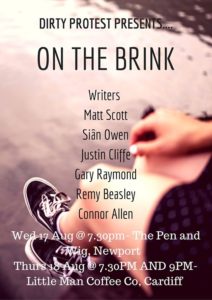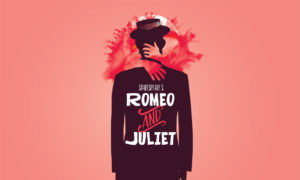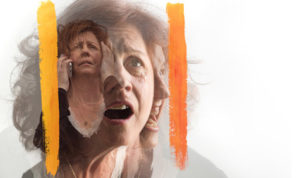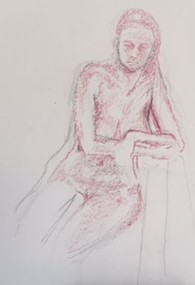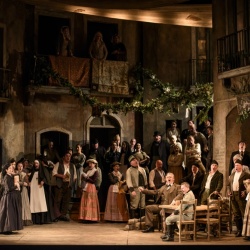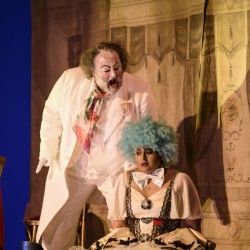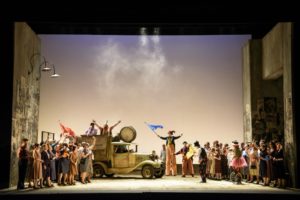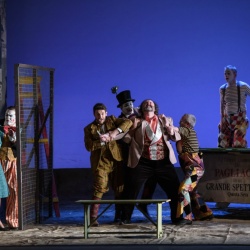 (4 / 5)
(4 / 5)
Bonfire Night. Newport’s riverside is looking crystal sharp in the cold air and the backdrop of fireworks reflect in the still water of the Usk…a poetic start to the poetry of the Bard in motion.
Good ol’ Will. It’s a well-known tale and we have all seen many interpretations over the years. Ballet Cymru will mime and dance its way through the verse in this very smart and suitable location.
And it is quirky and funny and sad in all the right places. It is strangely lovely with pearl curtains and warehouse projections; costumes peculiarly appropriate to the setting and the story.
With clog dancing.
How could you not love the clog dancing? The thump of the wood on the floor as the orchestra roars into Prokofiev’s finest. The masks, the confidence, the arrogance of the piece. Startling, angry, manly, perfectly placed. I am not alone in loving this, this visceral interlude.
A hard line drawn against the softness of Romeo and Juliet, the continuum of life against the void.
And I have to say, I love the fight scenes. I can see that the love scenes are beautifully played out, the emotions expressed exquisitely in dance; but the fight scenes capture the sense of boyish adventure. Protagonists from families expectantly discordant run rings around each other, play-fighting until blood is shed. The boys are men. Tybalt commands the stage. Mercutio burns brightly and then, revelling in his wordy end, burns out. The swords are sheathed. The music, the movements are oddly exciting to this complex choreography and I can see eyes shining with some primal lust around me.
How does ballet do this? How can this carefully designed dance portray the random acts of a few hapless young folk so well? I ask a dancer, the Friar, what a certain move means – this apparent lifting of the arms of another: ah, it’s about domination, about instruction, about control.
It is all about control. It’s about putting words to movement; movement to music. It’s taking this extraordinarily gifted troupe of dancers and giving them a different language to speak. It is every inch of the body telling a love story, a tragedy, as beautifully and as elegantly as it can.
The dancers play their roles with finesse and candour. It is not an easy story to tell and they do tell it beautifully.
We leave to see the last of the fireworks explode over the town and kick the Autumn leaves a little before we go. And I ask my friend, what do you think? “Well, more memorable than conventional productions I’ve seen.’ Yeah. I’d go with that.
Huge thanks to Patricia Vallis and cast for making us all so welcome at The Riverfront, Newport.
Enjoyed: 5th November, 2016, at The Riverfront, Newport
Touring: November to December, see website for details
http://welshballet.co.uk/
Dancers
Lydia Arnoux Anna Pujol
Andreamaria Battaggia Allegra Vianello
Gwenllian Davies Dylan Waddell
Miguel Fernandes Daniel Morrison
Mark Griffiths Robbie Moorcroft
Artistic Director Darius James
Assistant Artistic Director Amy Doughty
Associate Artistic Director Marc Brew
Composer Prokofiev
Original Play William Shakespeare

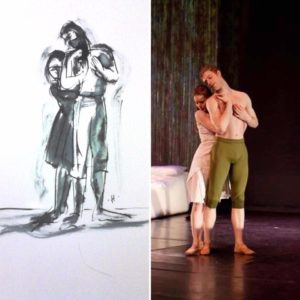
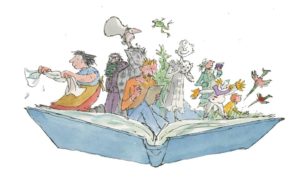
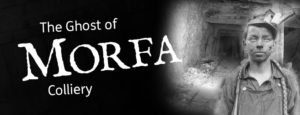
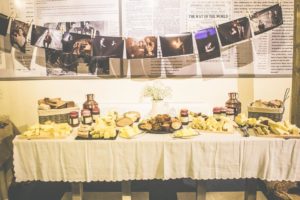
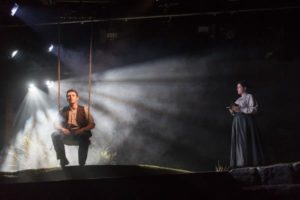


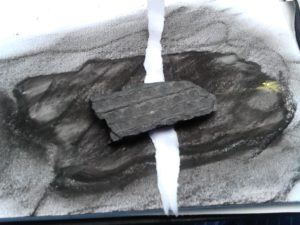
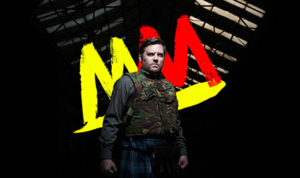
 (3 / 5)
(3 / 5)
